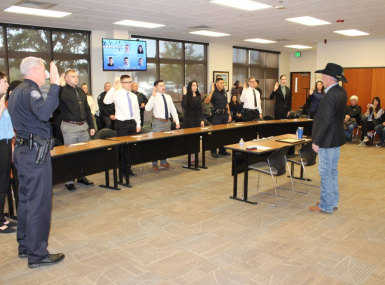FEMA disaster deductible proposal meets criticism from NACo
Upcoming Events
Related News
NACo, U.S. Conference of Mayors say FEMA proposal violates law requiring 75 percent contribution from feds for disaster relief
NACo and the U.S. Conference of Mayors (USCM) have filed joint comments with the Federal Emergency Management Agency (FEMA) regarding its recently announced proposal to implement a “disaster deductible.”
Last year, FEMA introduced a disaster deductible concept that, if implemented, would require states to satisfy an insurance-like deductible before receiving Public Assistance funding from the federal government to repair and rebuild damaged infrastructure after major disasters.
Since 2000, there have been 13 disasters that have each cost FEMA more than $500 million, according to the Congressional Research Service. The agency’s disaster-relief budget now exceeds $5 billion a year.
Learn More
The state deductibles would range from a high of nearly $53 million for California to a low of $1 million for Alaska, Vermont and Wyoming. FEMA says states could cut their deductibles and earn “credits” by adopting and enforcing activities that support readiness, preparedness, mitigation and resilience. That would include things like revising building codes in areas prone to flooding or reducing dense brush and invasive plant species where wildfires might take place.
FEMA has come up with a table of lower “final deductibles,” which takes into account estimates for potential credits. California’s deductible would decrease from nearly $53 million to $7.63 million, for example.
After receiving initial comments from stakeholders in 2016, FEMA released the second iteration of the proposal in January 2017 to solicit further feedback.
In NACo and USCM’s joint response, the organizations argued that the proposal would potentially violate current federal law that requires the federal government to provide a minimum of a 75 percent contribution on all public assistance funding provided following a disaster.
NACo and USCM also argued that a provision in the proposal that would provide an offset of the deductible for state disaster mitigation activities does not include investments that local governments have made.
Finally, NACo and USCM highlighted the need for the proposal to clarify whether States have the sole authority to determine which projects would, and would not, receive funding when state deductibles have not been satisfied.
In sum, NACo and USCM believe that the current disaster deductible proposal would present serious concerns for local governments and oppose the implementation of a deductible that does not address their concerns.
Attachments
Related News

CMS requires state Medicaid suspension upon arrest versus termination
Effective January 1, 2026, federal law now requires states to suspend, rather than terminate, Medicaid coverage when an individual is incarcerated.

ICE hiring surge challenges county law enforcement
Local governments hope that their law enforcement personnel will favor the familiarity of the communities they serve when weighing potentially lucrative immigration enforcement recruitment bonuses, which may require them to uproot their lives.

County officials moonlight in search and rescue roles
For some county officials, participating in search and rescue operations is another way to serve their communities, and make it safer for people to enjoy natural recreation resources.